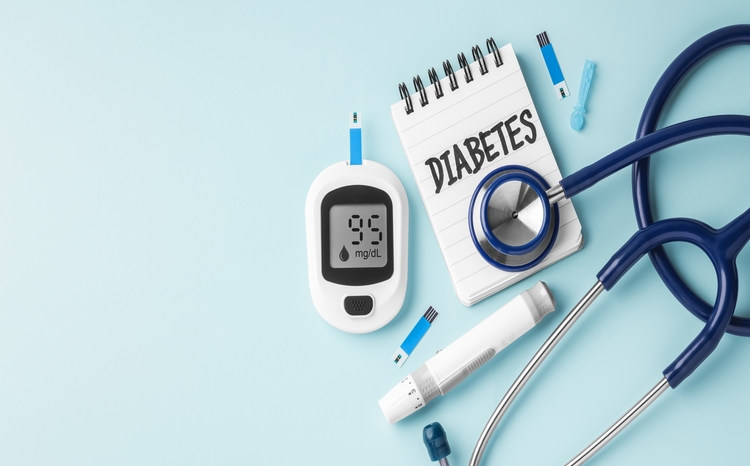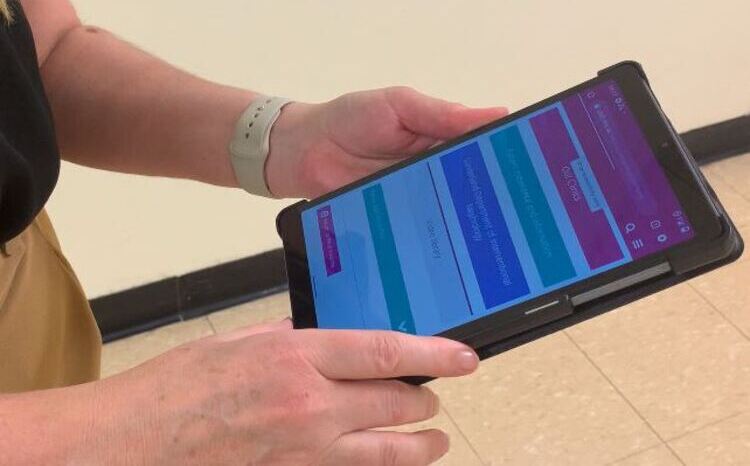Cognitant continues to drive improvements in T2D patients’ kidney health
- 8 November 2023

Bayer Digital Healthcare UKI, in collaboration with Cognitant, has launched its first digital patient support package, My Kidney Assistant, designed to provide type 2 diabetes (T2D) patients with the information and resources to help monitor and improve their kidney health.
Co-founder and CEO of patient engagement specialist Cognitant, Dr Tim Ringrose, spoke exclusively to Digital Health News about the company’s involvement in the project and the impact it will have on patients and clinicians.
The new digital patient support package provides T2D patients with access to personalised health information and data recording features, designed to support self-management of chronic kidney disease (CKD) or to reduce their risk of developing CKD.
My Kidney Assistant, created by Bayer Digital Healthcare UKI with Cognitant and help from local healthcare professionals and patients groups and Royal Berkshire NHS Foundation Trust, hosts curated, interactive, multimedia content to support the making of healthy lifestyle decisions.
In addition, the digital platform allows users to log health data (blood pressure, cholesterol, blood sugar), test results (urine, kidney function), and medication adherence. It enables the setting of personal goals (including weight loss, activity levels, and alcohol reduction) and delivers medication adherence reminders.
“The motivation for this was to tackle the fact that there’s a huge and growing number of patients with type two diabetes, and 40% of those of patients are at risk of developing significant kidney disease,” Ringrose explained.
“So we need to need to diagnose patients early, identify them early and provide them with the right tools to help them to reduce their risk of having significant kidney problems, because left untreated, their kidney problems will progress.”
Benefits for patients and clinicians
The technology provides key benefits for both T2D patients and clinicians. For patients, “the benefit is understanding more about their health and their condition” and being able to “understand how diabetes affects other organs” and “how this is something they can control,” Ringrose said.
On benefits for clinicians, he said: “We all know how overwhelmed the health service is, there just isn’t time at the moment for clinicians to invest the time required to explain to patients about what’s going on and what’s happening.
“A nephrologist said to me that GPs are actually spending less time on managing long term conditions than they have done previously, simply because they’re weighting it up; I could spend 20 minutes talking to the patient, and explaining to them all about their type two diabetes and how they can reduce the risk of complications, or at the same time, I could see three patients that have an acute problem that I can just deal with quickly.
“What we’re providing is a tool that means that the clinician doesn’t have to make that choice; they can say to a patient you’ve got type two diabetes, and the recent urine tests have shown that you’ve got some protein in there, which is an early sign of kidney damage, I’m going to send you a link to this so that you can understand what that means and what you can do about it. It’s a tool that will help to save clinical time.”
Challenges with implementation
Ringrose highlighted the struggles with introducing new technology into the NHS. “Naturally, the NHS is interested in introducing innovations that will have a long term impact,” he said.
“But when it comes down to sitting down with someone, and them agreeing to implement something, because of the pressures and the fact that the NHS works on an annual cycle, people are generally looking for much more short term savings and benefits from introducing technology.
“So I think our biggest challenge, really, is convincing the decision makers in integrated care systems that adopting this technology will not only be great in the long term but will also be a great benefit in the short term,” he added.
Elsewhere at Cognitant
The Cognitant CEO highlighted some other work the company is doing, including a stroke programme already in place at University College London Hospitals NHS Trust (UCLH) with SBRI funding.
Ringrose confirmed this programme has gone through its first evaluation and is now being rolled out to another four hyper acute stroke centres, having received “great feedback from patients and carers”.
“What we’re aiming to do is get patients out of hospital sooner, but getting them safely discharged so they, their carers and their family know what’s happened, know how they can really maximise recovery and reduce the risk that they will have another complication,” he said.
Ringrose said Cognitant is also working on some programmes with Portsmouth around asthma and have other programmes and development for children with allergies, involving teaching them how to use the self-injector and adrenaline pump.
“Our model is to build something with one centre, and then test it, evaluate it and roll it out as far as possible across the NHS, and hopefully in due course into international markets.”





